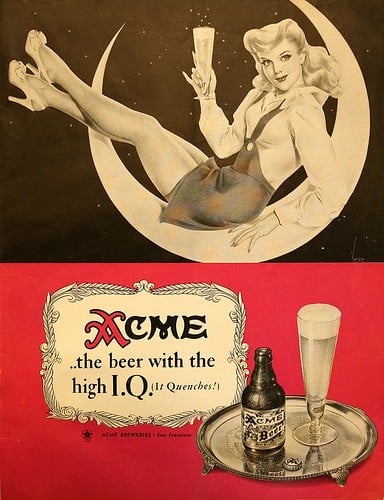I’m 25 and I don’t have a drivers license. I mean, I’ve never really felt the need to go and get one. Public transport is usually the fastest option where I live, and it takes a lot less responsibility to use it.
But most people would still prefer driving, rather than using the public T. Why?
If you live anywhere outside of the inner city, public transport gets slow really quick.
I live in San Francisco, so decent public transportation. But even then, it doesn’t run 24 hours. If you want late night fast food, unless you live in NYC, you either need a car or get to pay absurd prices for door dash to deliver cold food.
In my current case, because my local public transport service is not the most convenient.
I live in a medium sized city were we only have bus service. We have many lines covering “almost” all the city, but each of the lines only has a relatively small number of buses available. This causes long delays between arrivals and makes combinations very difficult when needing to use more than one line. Waiting times of 40 minutes in the bus stops are not uncommon. By car, it takes me 15 minutes to go anywhere.
Another issue is with pricing: in our case buying individual tickets VS a monthly pass only makes sense when you do more than 40 trips every month. It literally costs me more to use the bus than to pay for gas.
In the past I lived in much bigger cities with underground service and plenty of buses available, and I barely used the car, and didn’t even considered the pricing.
The biggest reason is my local public transportation. I live near a large city in northern West Virginia. The only bus that comes close to my address runs twice a day. Once at 7am and then again at 5pm. On top of that it would be a 20 minute walk, 10 minute bike ride, or 5 minute car ride to the bus stop. If I had to I could make it work but I can’t get groceries after work because I would miss the last bus by the time I got off work and finished my shopping. This means I would have to go out on Saturday at 7am and do my shopping and then catch the bus back at 5. Add on top of that having two kids and it’s just impossible. Unfortunately a lot of the US is like this. I wouldn’t mind if I had to pay more and my local government put more effort into public transit but that seems to be low on their list of priorities.
I will say that electric bikes and self driving cars in the future may change everything for the better.
I think most covered it all why they use a car.
I just want to add that it all depends on where you live. I don’t know what you mean by “most”. I would say most in cities with good bike lanes like Paris and Amsterdam would say most take the bike, or cities with great public transport like Tokyo would say most take public transport. If you live in a place like USA where it is dangerous to walk and the public transport is almost none existing then most would take the car. I think New York has ok public transport. But I don’t know, when I was there were sandy coming in so all of the subways were closed off.
In the US, the state of public transit outside of a handful of (very expensive) cities is significantly slower and less reliable than taking a car. I would pin the reason for this on the shift of people outside of urban areas into suburban ones, and the lobbying power of the automotive industry to convince the government and citizens alike that cars were the right choice.
If public transit is the fastest option in the area, people do choose to take it! That’s the case for me too in the past couple of cities I’ve lived in. But most cities have a long way to go before they get there.
Aside from just talking about this from a convenience angle, a message that might help explain the issues with car dependency is how much more it costs! People that are more hesitant about public services might be easier to convince with a cost-based argument. This is a great video explaining the actual cost of car ownership.
There is a substantial YouTube library of breakdowns on why we (usually North Americans) continually choose cars.
There are so many.
Speaking from a US standpoint, the public transit sucks. The main issue where I’m at is lack of bus stops, and the bus is never on time. I’d have to walk down a highway (not interstate) to get to the bus stop, then it might not even arrive on time.
Cars are faster, most of the time. However, they still suck. Traffic in dense areas is heavy at almost all times of day where anyone is active. It’s really a failure on the US government why people dont take public transit as much.
Answer in Progress did a video on this yesterday
I live 5 miles out from the city im WV. I would need to walk/bike up and down hills for 2 miles at a minimum just to get to a local transit stop.
Convenience. Directness. I live in NYC in an outer borough. To get to the neighborhood next door it’s a 45 minute series of bus rides with the wait or… A 5 minute drive.
Now add in I have a family and try to make a toddler wait for the bus and xfer just to get somewhere.
Are you confused as to why people would prefer to be in charge of their own transportation and set their own schedule instead of being at the whims of whatever forces that might cause buses & trains to be delayed, cancelled, rerouted, full, etc.?
When I lived in a city with good transit, biking and then taking the bus was more reliable than driving to work. Driving puts you at the whims of traffic and construction, some of which may or may not be forecastable.
Did you live in one of those cities where they had the flying buses? Because otherwise you’re just as much, if not more, at the whim of traffic and construction on a bus. A car will always be faster and more reliable than a bus. subways and local trains usually only beat cars because they’re often on a closed loop where they don’t have to stop. Plenty of trains have issues though, like the city I used to live in who shut down the trains downtown every single holiday weekend (downtown was the transfer point). A bike might be reliable on short distances where there is heavy traffic if you have dedicated bike lanes where you can avoid that traffic.
The problem comes if your city doesn’t have total subway coverage and you have to take a bus to a subway, take a subway, take a bus from the subway, driving will always win.
Bus rapid transit is a thing, as are bus lanes. It’s cool! No flying buses necessary.
Bus rapid transit and bus lanes are not universal and even if a city has them it doesn’t mean they have them on every single street. There have been times where public transportation has made sense for me. I lived in a city where I was on the same block as the train station and my place of work was a 5 minute walk from the destination station. Great, I took the train everyday.
The next job was a 25km drive, which took around 20-25 minutes in a car, and if I’d taken public transportation it would have been 1.5 hours each way. Most people fall into the latter type of situation which is why cars are so popular. Public transportation tends to fall apart as soon as you start adding in transfers. Buses/trains usually don’t perfectly line up so every time you have to transfer, you add in a significant amount of time, and neither of them are direct so when you combine inefficient routes with things like waiting time cars almost always make more sense.
Biking can quite often take you around traffic; in some cities, there are bus lanes that allow them to go around traffic too. Even just the ability to get off the bike and walk it up a one-way street can sometimes get you around some annoying obstacles.
Though it was hardly scientific, Top Gear once raced a car against three other forms of transit, the key being they had to go through the center of London during rush hour. First place was a bicycle, Second place was a boat, Third place was public transit, Fourth place was the car.
The vast majority of the plane isn’t driving through the center of London to get to work. In North America a lot of people are coming from the subburbs to somewhere else. Let’s look at the scenarios a lot of people deal with.
- You take one bus near your house to your work
- You live near a train station and you work is near a destination station
- You are within reasonable biking distance and aren’t going to end up a sweaty mess by the time you arrive
- You can’t do 1 or 2 because a single route won’t get you there and you may need additional transfers/long walks to get there.
1-3 are usually fine for commuting. Assuming you don’t need a vehicle to run errands, transport anything big to and from work, etc.
4 is the scenario for most people and why cars are popular. If I can walk out my front door to a bus stop, and get dropped off right beside work, a bus is great. if I walk 15 minutes to a stop, wait for a bus, take an inefficient route in the general direction of my work, get off, wait for a transfer (could be 5-15 minutes depending on the city/route) then take another inefficient route only arrive at my office in 2-3x the amount of time it would have taken to drive there, I’m driving. Most people don’t seem to realize that most places don’t have the awesome transportation system of a New York City, London, or some places like Seoul or Tokyo.
As the cities get smaller, the transportation gets worse. I grew up in a city that had 1 bus on every route. it would go by every stop once an hour. It was really awful as a system especially if you had to transfer. It wasn’t just a matter if living near a stop and having work near a destination stop, you also had to see if the bus time lined up with your work time. Otherwise you’d be there an hour early and maybe have to stay an hour late. If you live in some European or Asian cities that have really good public transit, or one of the very few north american ones that do, and your work and house line up just right, it makes sense for you, but for most it doesn’t.
I think a few others have mentioned how about 80% of the population, at least of the USA, lives in urban areas. So yes; generally the vast majority of people ARE traveling through heavily settled areas to get to work.
Everything you’re saying about 1-4 is pretty much correct; and that’s why in the end, I don’t blame most in the US for not waiting an hour for a bus going to a train. But 4 isn’t so often because it’s “impossible/impractical” to set up public transit for that area; it’s just that that area has, perhaps foolishly, invested more into cars, 4-lane roads, and parking lots than good bus/train systems, cycling lanes, and pedestrain areas. In the US cities that get it right (not so many, I’ll admit), it’s a really good experience, even taking a bike through large areas. Plus, the advent of smartphones helps people get to buses on time with minimal waiting.
Yesterday, I was headed somewhere, saw on my phone that a taxi would take 15 minutes to arrive, said “fk no, that’s too long” and biked to a subway stop. Given that it was rush hour, the trip was faster than if I’d taken a taxi.
For north america it’s an issue of lower population density, a significant issue in most Canadian cities and mid size and lower American cities. Europe usually has higher density and better investment. Most cities can’t justify running frequent bus services in those areas which means people want to drive and thus fewer people use the bus and the buses get scaled back or removed. I’ve lived at both ends of this. Most cities aren’t willing to spend the money in the hopes that ridership catches on. I lived in a city of a million that had only 2 train lines. If you were lucky and lived right on it and worked right on it great. Otherwise every trip became insanely long. Many feeder buses were every 30 minutes, so you ran into a schedule issue there, then you had to get to the train, and possibly wait 15-20 minutes for it. Get to where you were going, get off and wait for the every 30 minute bus going out to where you needed to be and ride that.
Even if you left right when the bus was coming, you’d be looking at 15 minutes to the station, waiting up to 20 minutes depending on how the wind blew, riding say 25 minutes to your destination (already at 1 hour) then getting off waiting for possibly up to 20 minutes for the other bus, and then another 20 minutes out to where you were going. Possibly 90 minutes, vs 30 minutes in a car, and you could leave when you wanted to.
If the train time didn’t exactly line up, you might end up leaving 2+ hours before work started, vs leaving 45 minutes before while driving.
That’s all a valid critique, but…I struggle to see how your explanation is that it relates to “population density”. We are talking about the cities, not trying to put trains in Montana farmlands.
In fact, within urban/suburban areas, the point of population density mostly relates to…investments. Because each home and commercial strip is separated by two miles of four-lane roads, parking lots, and clover highway on-ramps, everything is more spread out; hence, less density. So I feel like a lot of people disagree on which end of the chicken-and-egg explanation. America is big, and has areas that will never be covered by transit, but that’s not an explanation for why out-of-car transit is terrible in its urban centers. It’s generally caused by poor decisions in infrastructure investment.
In the US, public transit is almost universally unavailable. If it is available, it’s a massive luxury (or strictly necessary, like NYC).
Agreed, the only cities that I’ve been to that had decent public transport were Chicago (The L) and New York City.
Salt Lake City is coming up in public transit. There’s a decent light rail and a pretty well spaced bus network. Frequency is a major issue though.
I’ve heard public transit is pretty good in DC, too. My fiancée and I are planning a trip to DC at the end of August. I plan on parking my car at the hotel and just use public transit, so we’ll test that theory.
EDIT: Also, I’ve never been to Salt Lake City. Seems like a really cool place though!
It has its blind spots (NW is underserved because the NIMBYs didn’t want the Metro to bring
black peoplelower property values) and it has infrastructure issues, but it’s on the whole pretty good
My main mode of transportation is by bike (I’m Dutch so that’s not surprising). For most trips a bicycle is much faster than a car. I only use my car if need to go a long distance or if I need to transport something too big to transport by bike. I only need to fill up my car with gas once or twice a year.
Do you use a car sharing service or do you own a car? Because it sounds like with your usage pattern, the former might be cheaper.
I own a. car, but it’s a tiny car (Mitsubishi Colt CZ3) so it’s in a very low tax bracket, I also have maximum no-claim discount on my insurance and this model car is very reliable so maintenance is minimal. It’s probably a little bit more expensive than a membership in a car sharing service but it has the advantage of always being available when needed.
For me it is easy choice. By car i need 10 minutes from home to work, by bus i need about 60 minutes. So in one day i save about 100 minutes.










